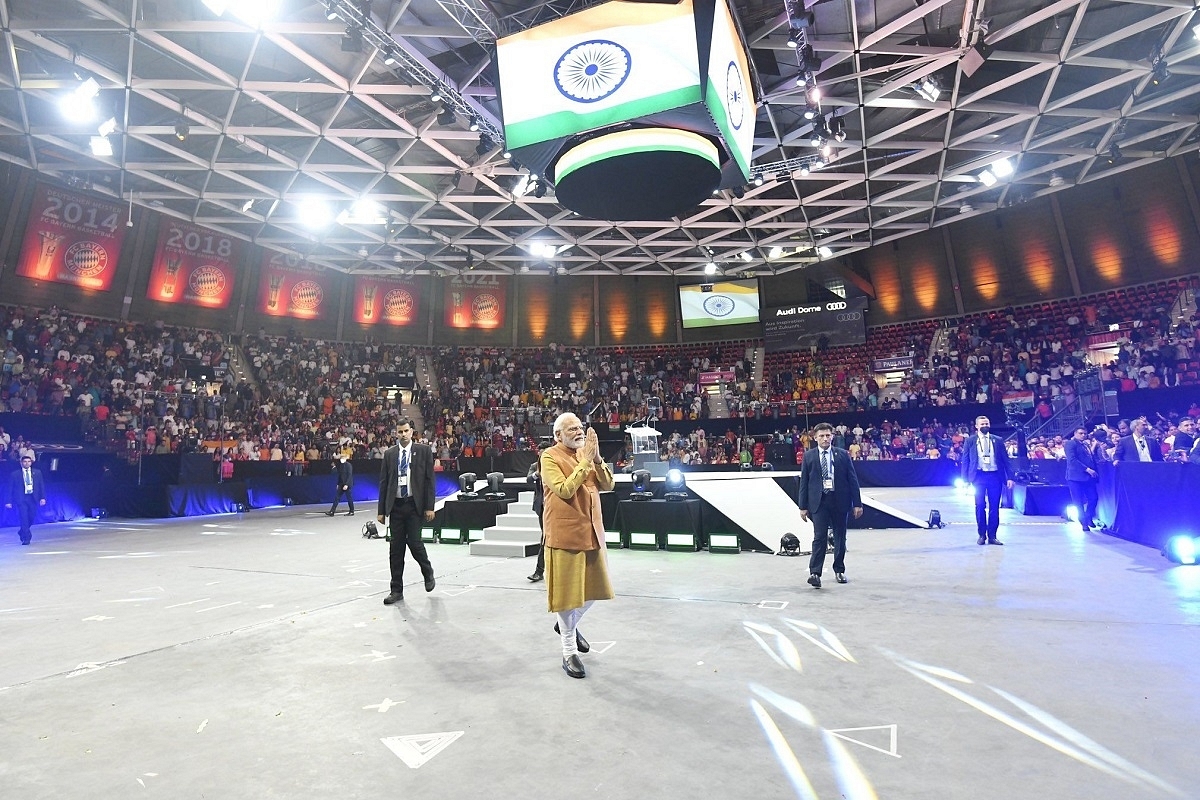Context
At G-7, Spotlight On India's Rising Role And Stature In Solving Global Challenges

Prime Minister Narendra Modi in Munich, Germany
After a successful engagement at the WTO in Geneva, Prime Minister Narendra Modi is drawing global attention to India's role in the areas of climate, energy, and food security at the G-7 summit in Germany.
Context: First the WTO summit and now the G-7, India is being seen as an essential and reliable partner in every effort to resolve global challenges.
At the G-7 summit, India joins Argentina, Indonesia, Senegal, and South Africa as invitees.
Chancellor Scholz of Germany said the invitations were made to "recognize the democracies of the global south as partners."
The G-7 is an inter-governmental group of France, Germany, Italy, Japan, the United Kingdom (UK), the United States (US), and the European Union (EU).
The summit is being held from 26 June to 28 June at Schloss Elmau, Germany.
The backdrop: The G-7 meeting is happening amidst the Russian invasion of Ukraine. The war has unleashed a food security crisis around the world. India is doing a fine job in response.
India has not just ensured food security for its people, but is at the forefront of addressing food security issues in vulnerable countries.
"I think there has been a widespread appreciation of how India has taken forward this position," India's Foreign Secretary Vinay Kwatra said.
India at G-7: India is at the forefront of key world priorities that are at the top of the G-7 agenda, namely energy transition and economic recovery and transformation followed by pandemic prevention and control, sustainable investments and infrastructure, and promotion of shared values of democracy.
Priority on increased engagement: The Russia-Ukraine war has dramatically changed the geopolitical reality upon which our multilateral system is based and collective action is urgently needed.
"The G-7 is a necessary forum, but it is not enough on its own. The G-7 would do well to invite partners from the African continent and major emerging economies from the G-20 to Elmau,” Axel Berger of the G-7 think-tank group Think7 said.
India’s shared interest with Germany in forging cooperation and coordination between the G-7 and G-20 can be useful to advancing common goals through the German and Indian presidencies of G-7 and G-20 respectively this year.
Trouble in South Asian waters: India can highlight to the developed countries the need for them to come together and partner with Sri Lanka to address its economic situation.
India has assisted Sri Lanka by providing:
Roughly $3.5 billion-worth financial assistance to Sri Lanka through currency swap under the SAARC arrangements
A billion-dollar line of credit for the trading arrangements
A rollover of the Asian clearing union settlements of dues
The G-7 has their work cut out. Notable areas include:
Green transition: A transition to eco-friendly technologies isn't possible for developing and emerging economies without aid from developed economies in areas like technology and finance.
Regulations such as the EU’s Carbon Border Adjustment Mechanism will affect market access for goods from developing countries, including India.
Green transition can become smooth through the coordinated actions of India and Germany.
Even within the G-7, it is imperative to deliver on its commitments to international climate finance and reform its financial regulation to drive more sustainable investments, experts of Think7 said.
Post-pandemic economic relief: There is a call for the G-7 to establish a debt relief framework that provides all countries with the fiscal space they need to respond to the consequences of the Covid-19 crisis and the war in Ukraine.
The announcement of a $600 billion infrastructure initiative to help developing countries tackle climate change would be an appropriate response to this need.
Digitisation and data privacy concerns: With the global digital corporations becoming increasingly more prominent and assertive over entire sectors of the economy, the G-7 needs to act now.
In digital networks, digital corporations are already the real power holders today, say "Think7" experts.
The G-7 could create a unified legal framework to give digital users true control over their personal information and ensure that citizens experience the same rights, protections, and opportunities in the online world as they do in the offline world.
Finally: The ongoing summit in Germany comes against the backdrop of a world in disarray. With coordinated action across fields, the developed and economically advanced countries can do a lot in providing a cushion to emerging and developing economies. India can play a key role here.
Introducing ElectionsHQ + 50 Ground Reports Project
The 2024 elections might seem easy to guess, but there are some important questions that shouldn't be missed.
Do freebies still sway voters? Do people prioritise infrastructure when voting? How will Punjab vote?
The answers to these questions provide great insights into where we, as a country, are headed in the years to come.
Swarajya is starting a project with an aim to do 50 solid ground stories and a smart commentary service on WhatsApp, a one-of-a-kind. We'd love your support during this election season.
Click below to contribute.
Latest